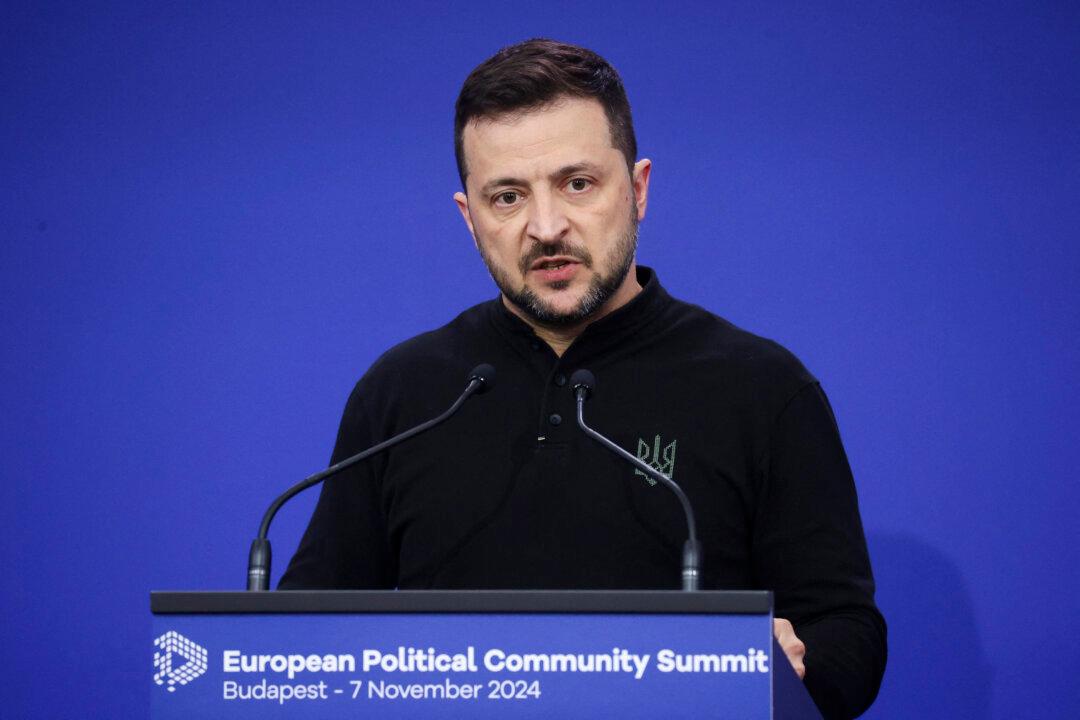Ukrainian President Volodymyr Zelenskyy confirmed on Nov. 15 that his country’s war with Russia will “end sooner” after President-elect Donald Trump’s win last week.
Throughout the 2024 campaign, Trump and his running-mate, Sen. JD Vance (R-Ohio), have vowed to end the Ukraine–Russia conflict, saying that the United States has provided too much funding to the Eastern European country, and have warned about the specter of nuclear war amid the conflict.





